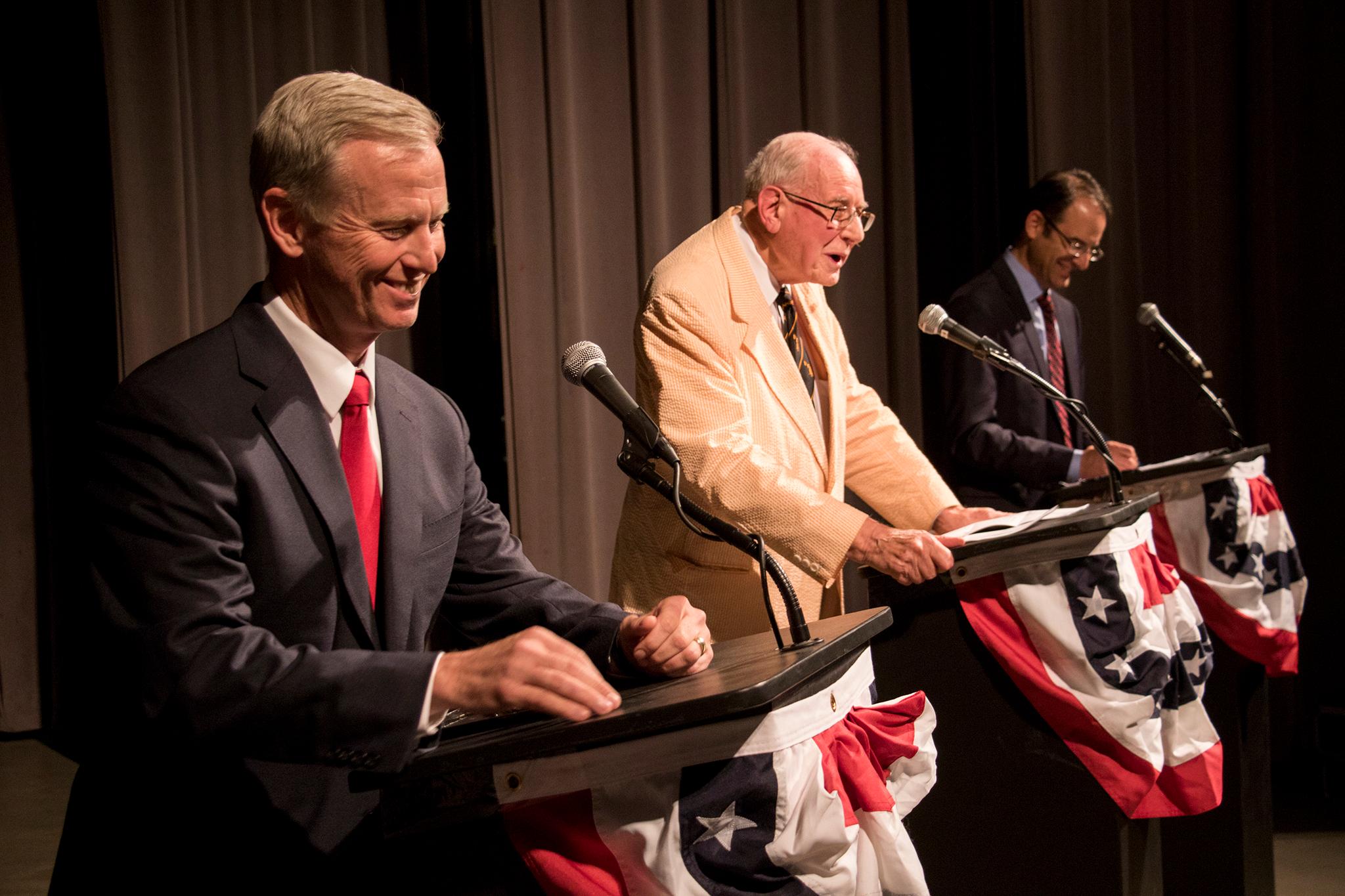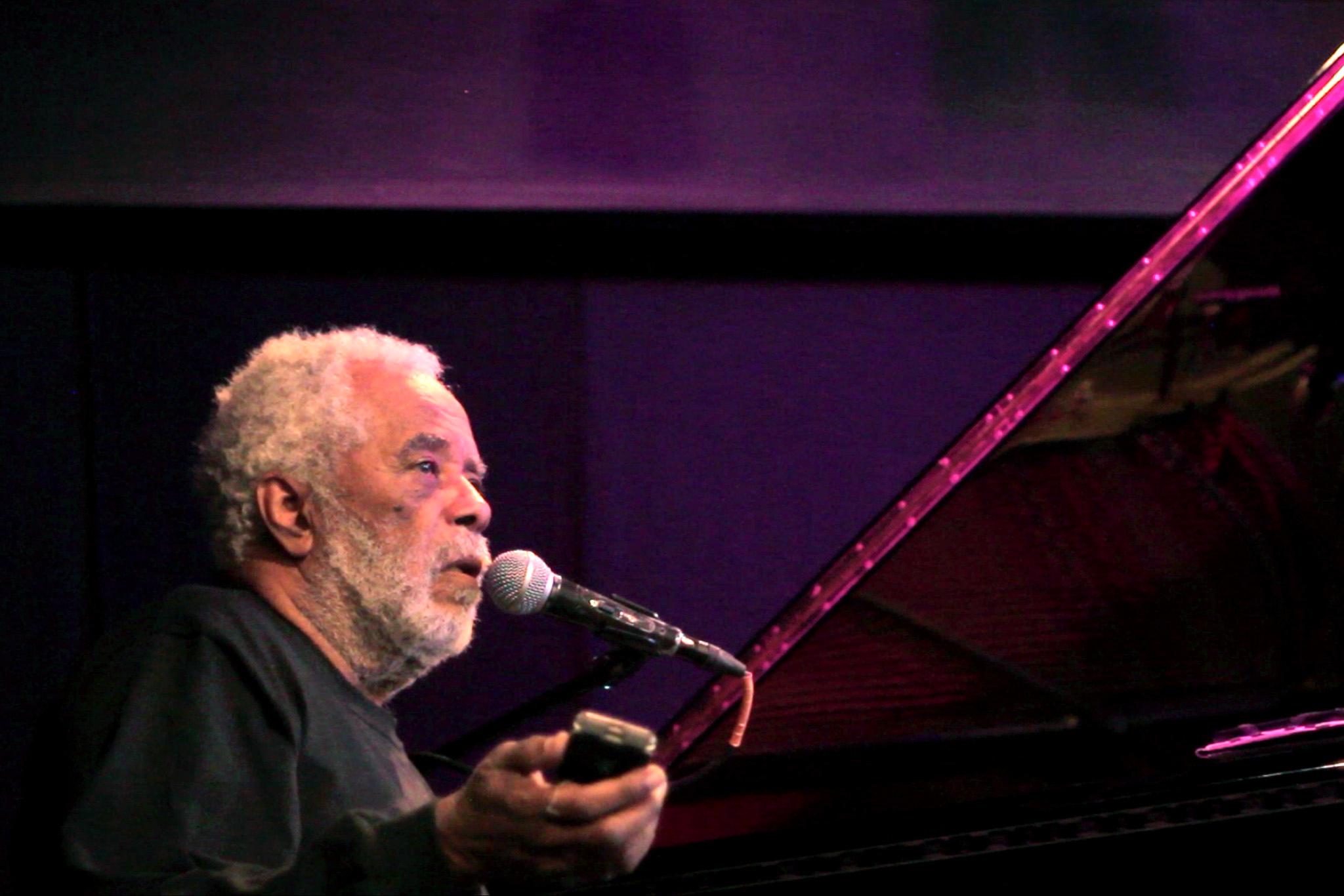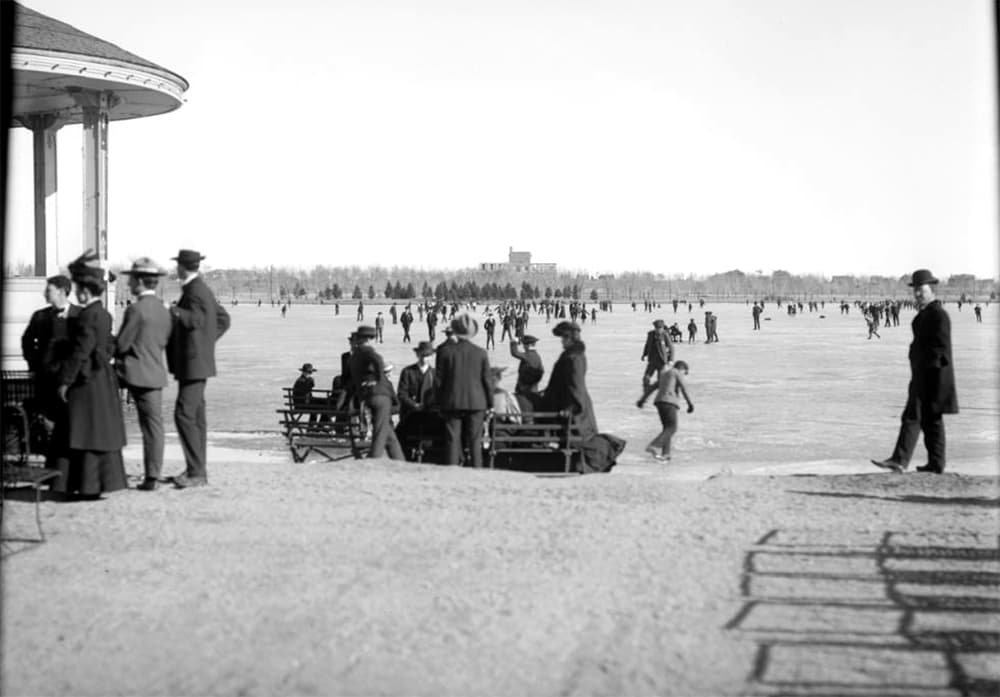Why is Republican George Brauchler so nice to Democrat Phil Weiser when they share stages, but repeatedly goes after him on Twitter?
On Monday before a full-house audience at the Auraria Campus, the two Colorado attorney general candidates went after one another only once during a debate organized by the Denver Bar Association. They were joined by Libertarian candidate William F. Robinson.
When they got a chance for rebuttal, the two major-party candidates stayed calm. Things got slightly chippy — Brauchler even shook his head — when the two disagreed about their leadership styles and responsibilities when it would come to litigating civil or criminal cases.
Other than that, it was pretty cordial (again). Maybe we’ve gotten used to the verbal, almost-shouting matches we’ve seen in congressional or gubernatorial debates, so the civil, totally chill discourse seems weird. There was even some humor on Tuesday without the mention of kombucha (Robinson cracked a joke about conception, let’s leave it at that).
Still, Monday’s debate provided some more insight into how the men vying to be Colorado’s top law enforcement officer will oversee the office, which is set to be decided in two weeks. They discussed criminal justice reform, the opioid crisis, civil rights, litigation against the state, domestic violence and diversity in the workplace.
Here are three things we learned from Monday night's debate.
Both have some goals to make changes in the criminal justice system.
Brauchler said he wants to increase sunset clauses for all criminal laws. These are clauses written into laws that set expiration dates unless they're reauthorized. He said it will allow this generation to “put its fingerprints” on and control laws governing the state.
“We should be sunsetting theses laws every seven to ten years,” Brauchler said. “So we decided what we think about DUIs, we decided what we think about teen sexting, and we decided what the appropriate penalties are for violent crimes and property crimes.”
Brauchler wants to take a look at how long felony convictions last on criminal records. He gave the example of a young man who steals a car and ends up a convicted felon for the rest of his life. One way to address this would be creating a program allowing people convicted of crimes to have their convictions reduced after reaching certain milestones in education, employment or time without a crime.
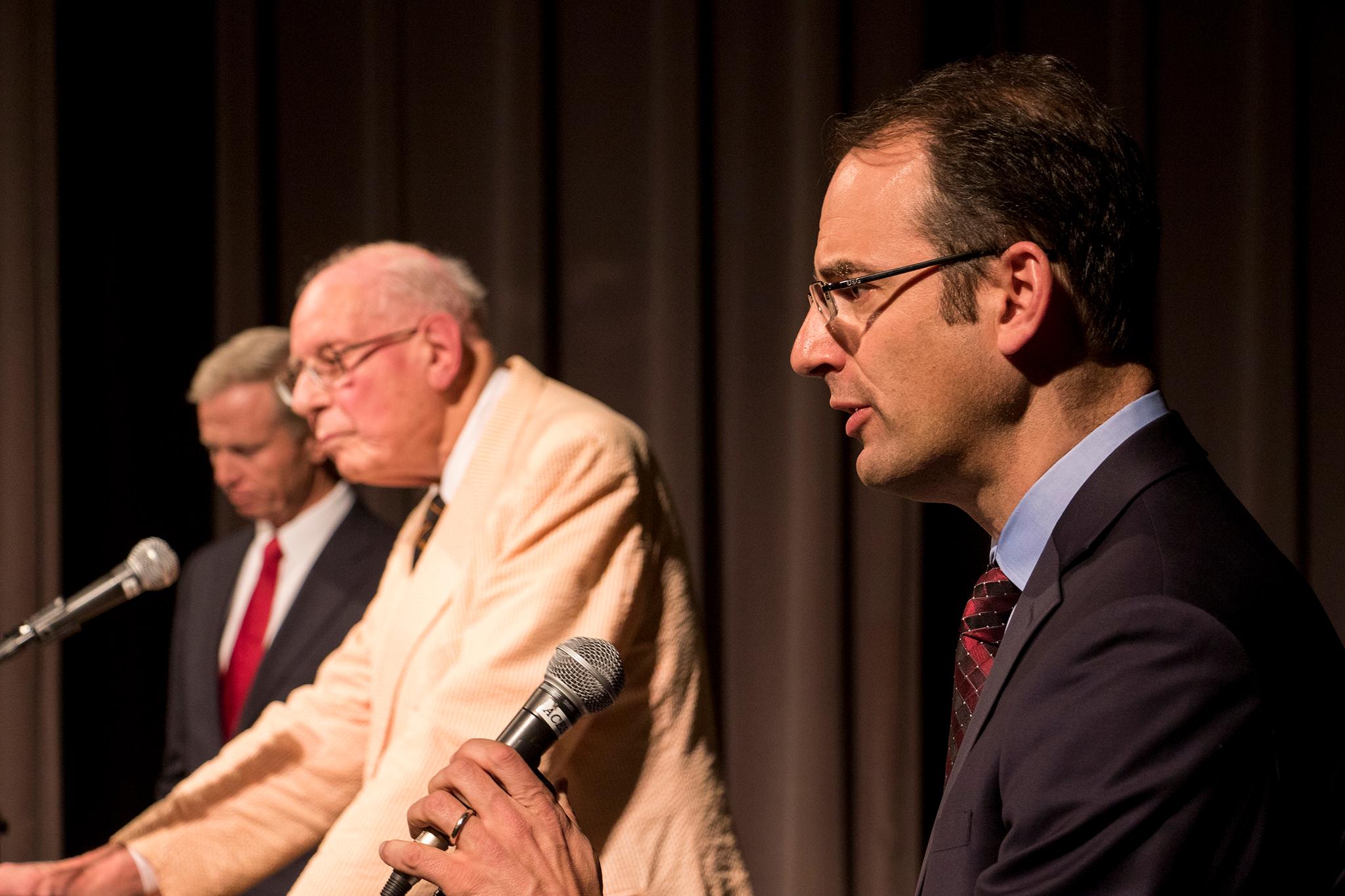
“The criminal justice system should be in the business for sure of locking up the most violent repeat offenders to protect us,” Bracuhler said. “The criminal justice system in many ways has lost sight of rehabilitation.”
Weiser said the AG's role is to partner with the state legislature to advocate for “sound legal reforms,” including reforms in criminal justice. Weiser said he wants to address the opioid epidemic, which he says is crowding prisons in the state.
“When I sue the pharmaceutical companies, we’ll get their money for drug treatment, and put opioid users in treatment and not in jail,” Weiser said. “That’s criminal justice reform.”
Both Weiser and Bauchler want to look at bail, which Weiser said the office must get smarter about addressing. Bauchler said bail reform is a good start, but more needs to be done to improve wrap-around services for people at risk of recommitting crimes.
Right now, Weiser said, if you’re poor, you stay in jail because you can’t afford bail even if you’re not a flight risk. Meanwhile, rich folks who are flight risks can often bail out.
“That’s wrong,” Weiser said. “We need to reform that here in Colorado.”
He wants more diversion programs for juveniles, to provide alternatives like “spending a summer in the San Luis Valley on a farm” instead of being locked up.
Robinson, who gave some rambling responses and had to be asked by the moderator to stay on track a few times, said what the state currently has is an “administrative state.” He wants to end the war on drugs, which he believed could lead to emptying out the jails.
(At the end of the debate, during his closing remarks, Robinson pretty much admitted he knew he wasn’t going to be elected to the office, though he offered the party as an option for voters).
The candidates were asked what they would do about Immigration and Customs Enforcement showing up near courts to arrest people.
Brauchler, the current Arapahoe County district attorney, said he doesn’t see ICE in their courthouses often.
“Frankly, if they were there, I’d have a conversation with them about being someplace else,” he said. He also said there are normal fears unrelated to immigration status that also prevent victims from coming forward.
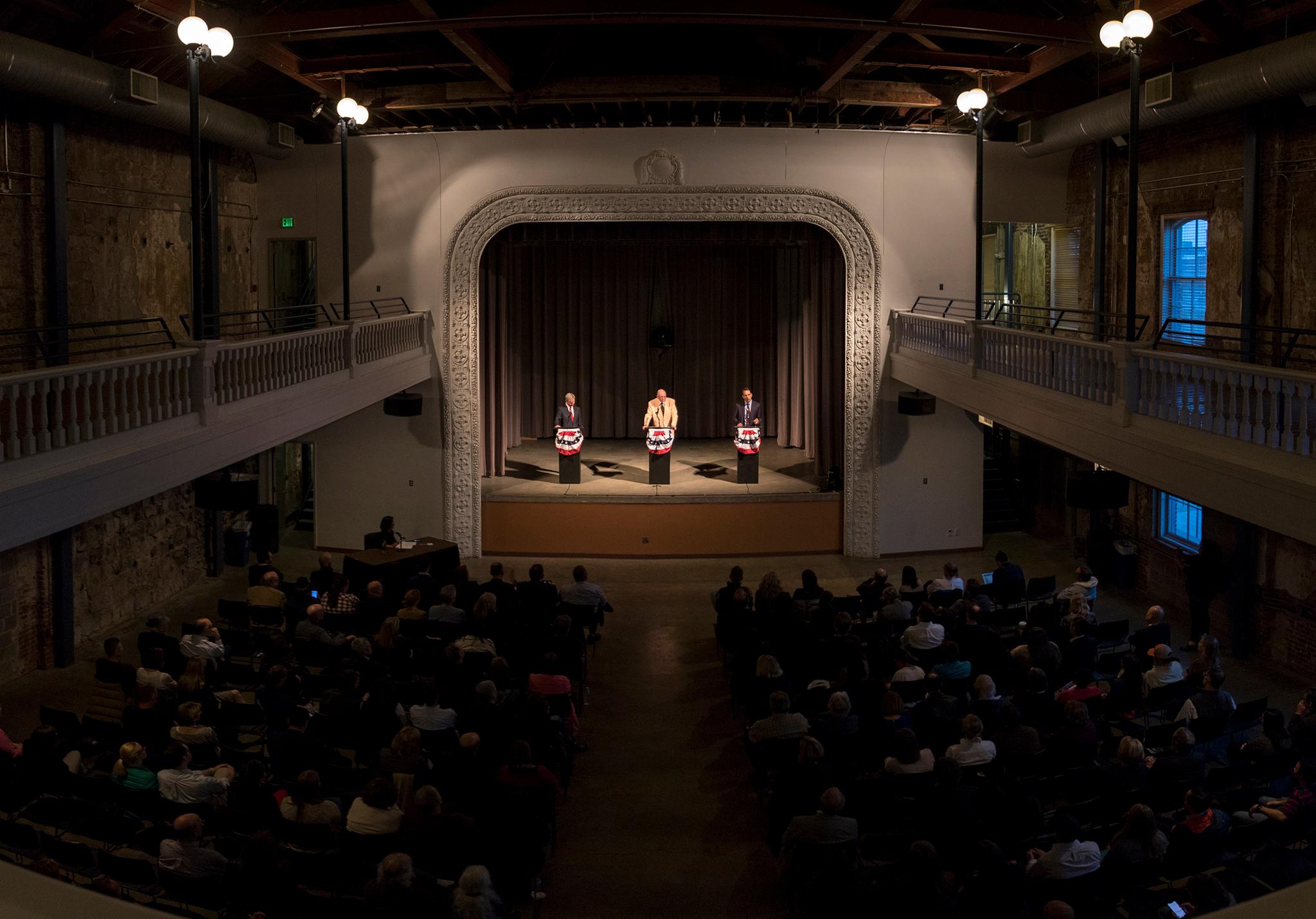
A helpful tool in situations like this, and one the AG's office would have, is using a U Visa.
“So what you know is that is a powerful tool that a prosecutor or a chief of police or a sheriff can use can use to tell a victim —regardless of immigration status — if you cooperate with us, in protecting you, in protecting your children, helping us get the bad guy ... we can provide you with the paperwork necessary for immigration to provide up to five years to stay with a legal status right here in the state of Colorado," Brauchler said.
Brauchler said there are only about 10,000 U Visas in the country, and he would like to increase this number.
Weiser pointed out Denver’s policy to not work with federal officials. He said the policy was important because it keeps people safe, adding that he agrees that using U Visas is a good idea, but it’s a limited tool. He would work to stand up for Denver and other cities implementing similar policies.
“Immigrants right now are afraid,” Weiser said. “And the question in this election is will our attorney general stand with immigrants and their rights, whether it’s the dreamers, families separated at the border or supporting Denver lawful policy that has stood up against federal overreach and commandeering.”
Brauchler and Weiser spoke at length about civil rights but were specifically asked about policy objectives addressing the LGBTQ community’s civil rights.
Weiser said it’s important to “vigorously enforce” civil rights laws in the state protecting people based on their sexual orientation and gender identity.
“It’s important to encourage, as George noted, social norms of acceptance, both how you run the office and you engage people,” Weiser said. “We are still on the journey that Martin Luther King talked about, which is the moral arc of the universe is long but it bends toward justice.”
He called the recent report of the Trump administration looking into adopting a more narrow definition of gender, excluding transgender identities, as unconstitutional. He believes the Civil Rights Act of 1964 protects against discrimination based on sexual orientation and gender identity.
“For people in Colorado, I will protect your rights under state law and federal laws,” Weiser said. “Because equal justice needs someone who is committed.”
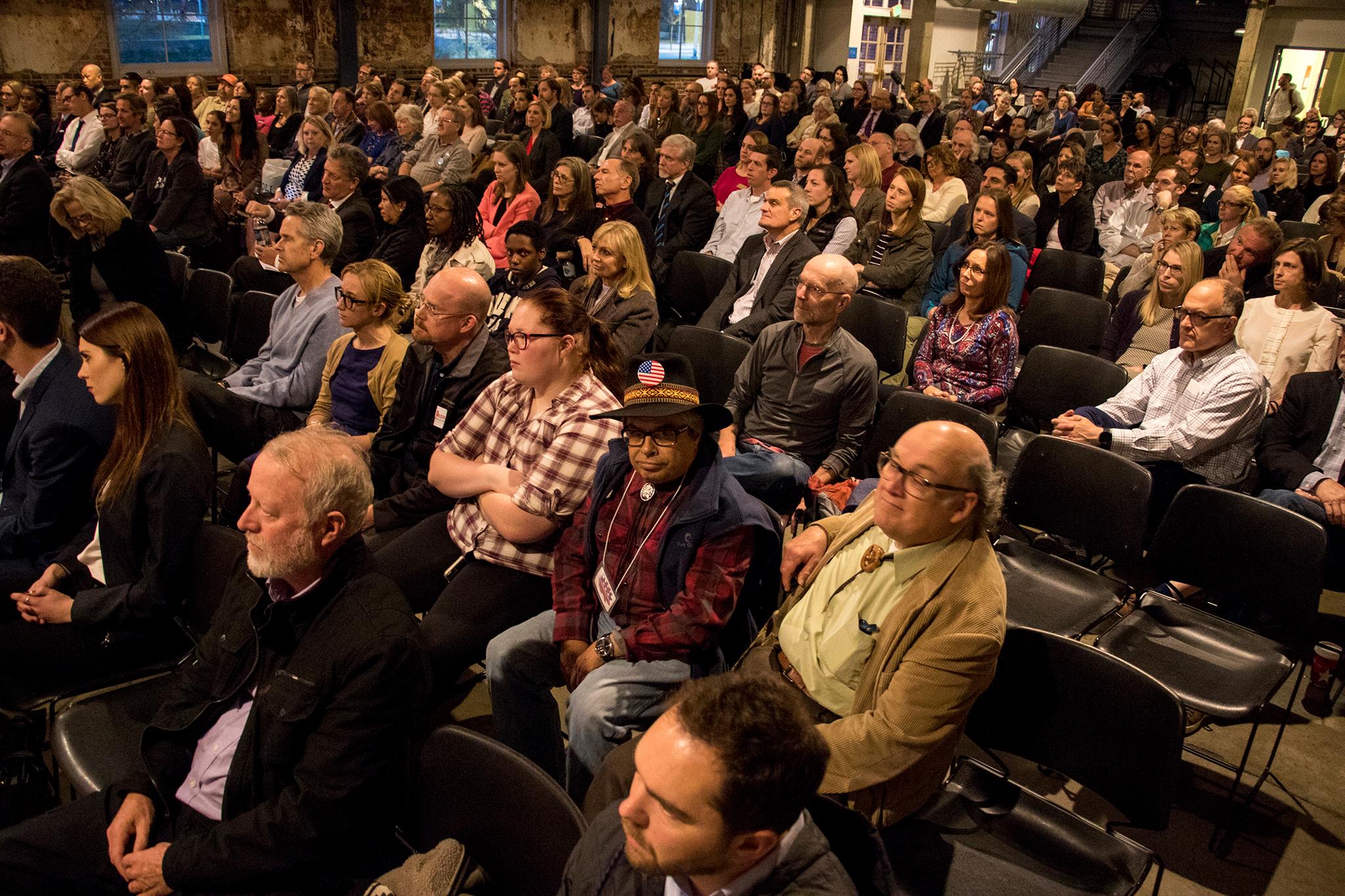
Brauchler said he met with One Colorado, the LGBTQ advocacy organization in the state, after becoming Arapahoe County district attorney. They confirmed what he suspected: domestic violence and sexual assault in the LGBTQ community are under-reported.
One thing someone with the power of the AG's office could do would be to reach out to victims and make them feel “comfortable and empowered” to seek help, he said.

